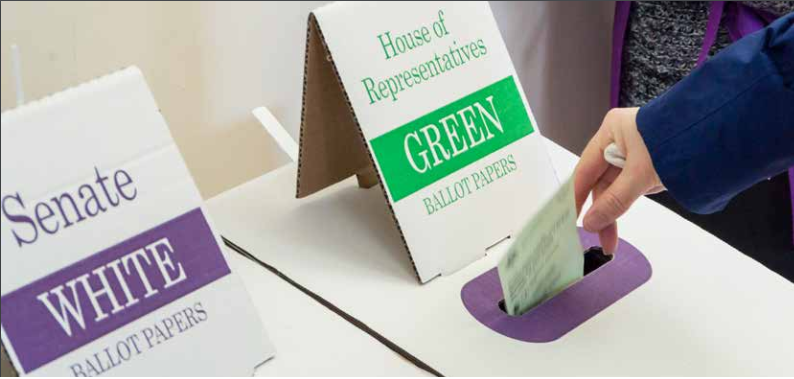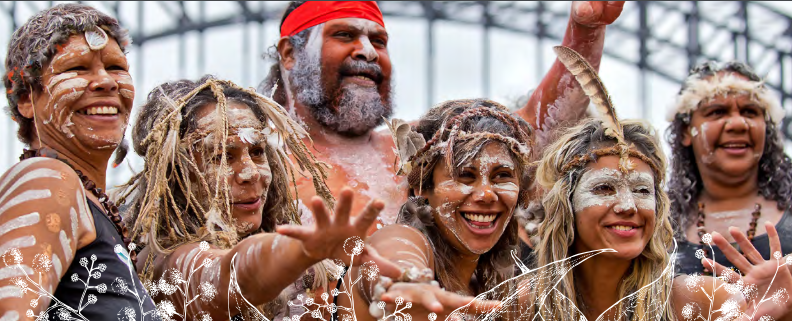When you become an Australian citizen, you will have additional responsibilities and privileges.

Responsibilities—what you will give Australia
As an Australian citizen you must:
- obey the laws of Australia
- vote in federal and state or territory elections, and in a referendum
- defend Australia should the need arise
- serve on a jury if called to do so.
Privileges—what Australia will give you
As an Australian citizen you can:
- vote in federal and state or territory elections, and in a referendum
- apply for children born overseas to become Australian citizens by descent
- apply for a job in the Australian Public Service or in the Australian Defence Force
- seek election to parliament
- apply for an Australian passport and re-enter Australia freely
- ask for consular assistance from an Australian official while overseas.
Responsibilities
Obey the laws of Australia
Our representatives in government make laws to maintain an orderly, free and safe society and to protect our rights. All Australian citizens and other people in Australia must obey the laws of Australia.
More information about some important laws in Australia can be found in Part 3, Government and the law in Australia.
Voting in federal and state or territory elections, and in a referendum
Voting is an important responsibility, right and privilege for all Australian citizens aged 18 years or over.
It is a responsibility for Australian citizens aged 18 years or over to vote in federal and state or territory elections, and in a referendum, which is a vote to change the Australian Constitution. By doing this, Australian citizens have a say in how Australia is governed and contribute to its future. Voting is compulsory in federal and state or territory elections. It may not be compulsory to vote in local government elections in some states.
More information about the Australian Constitution can be found in Part 3, Government and the law in Australia.
Defend Australia should the need arise
While service in the Australian Defence Force is voluntary, a responsibility for Australian citizens is to defend Australia should the need arise. It is vital that all Australian citizens be committed to joining together to defend the nation and its way of life if necessary.
Serve on a jury if called to do so
Jury service, if requested, is a responsibility for Australian citizens aged 18 years or over. A jury is a group of ordinary Australian men and women who listen to the evidence in a court case and decide if a person is guilty or not guilty.
Australian citizens who are on the electoral roll can be called to serve on a jury. Jury service helps to ensure that the court system is open and fair.
Privileges
Apply for work in the Australian Public Service and the Australian Defence Force
A privilege of Australian citizenship is to apply for a job in the Australian Public Service and work for the Australian Government, for example, in Services Australia or the Australian Taxation Office (ATO).
Australian citizens also have the right to apply for a job in the Australian Defence Force (the Army, Navy and Air Force).
Seek election to parliament
Australian citizens who are aged 18 years or over, and who are not dual citizens, can seek election to parliament at the federal, state or territory level. It is an honour and a serious responsibility to serve in an Australian parliament.
Apply for an Australian passport and re-enter Australia freely
When you become an Australian citizen, you have the right to live freely in Australia. You also have the privilege to apply for an Australian passport. If you travel overseas as an Australian citizen, you are free to return to Australia without the need for a visa.
Ask for consular assistance from an Australian official while overseas
In many countries, Australia has an embassy, high commission or consulate. While you are overseas, you can ask for help from an Australian government official in times of need. This includes in the case of emergencies such as civil unrest and natural disasters.
Australian officials can also help Australian citizens overseas with the issue of an emergency passport, and advice and support in the case of an accident, serious illness or death.
When in another country, you must obey the laws of that country.
Apply for children born overseas to become Australian citizens by descent
Australian citizens can apply for their child born overseas to become an Australian citizen by descent.
Participating in Australian society
Australia encourages all citizens to actively participate in society. Active citizens take on the responsibility and
privilege of shaping Australia’s future. For example, you can join neighbourhood and local community organisations, volunteer to do social and community work, join an arts or cultural organisation, and actively participate in political life.
Paying tax is another important way you directly contribute to the Australian community and is required by law. Tax is paid out of the money you earn, whether it is from a job, a business or investments, and is collected by the ATO. There are also taxes on many goods and services. The ATO works to ensure all citizens are aware of their tax rights and obligations to pay the correct amount of tax.
Many of the benefits that Australians enjoy are made possible through taxes. Taxes are spent on services including government-funded healthcare and education, defence, roads and railways, and social security.
By working and paying taxes, you support the government to provide these important services to the Australian community. State and territory governments and local councils also collect taxes to pay for services. These services help make Australia the peaceful and prosperous country it is today.




